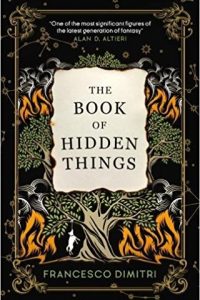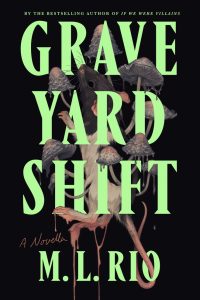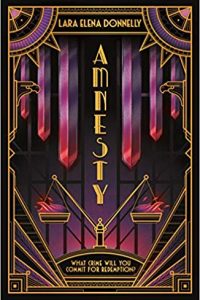Rich Horton Reviews Short Fiction: Analog, Asimov and Lady Churchill’s Rosebud Wristlet
 Analog 7-8/21
Analog 7-8/21
Asimov’s 7-8/21
Lady Churchill’s Rosebud Wristlet 6/21
The cover story in the July-August Analog is Marie Vibbert’s novella, ‘‘The Unlikely Heroines of Callisto Station’’. The heroines of the title are Lottie, whom we meet as she is reluctantly accepting treatment for bipolar episodes from a nice psychologist named Saravit; and Xiao Fung, a maintenance worker (and Saravit’s girlfriend). Xiao doesn’t like Lottie and Lottie either doesn’t notice or is scared of Xiao – but when a ‘‘ship in distress’’ turns out to be pirates they are the only two people who can save the day. So far, so predictable – and the plot’s shape is predictable, but that’s okay, and it’s plenty of fun too – the story works by making these two heroines (and other characters, like Saravit and like one of the pirates who is really rather reluctant despite the economic forces that led him to join some more nasty characters) believable as well as highly likable.
Also fun this issue was ‘‘Mandatory Arbitration’’ by Leonard Richardson, a very old-style-Analog piece about Jer, a not very talented digger of the ricto species that does the mining labor on a planet controlled by Monolith Metals. Jer’s limited digging ability has led to his job as ‘‘judicant,’’ charged with handling legal matters. Then a rabble-rouser, Ravy Uvana, shows up, and reveals to Jer just how slanted the Monolith-designed legal system is – and between the two of them they improve things a bit. Minor stuff, but enjoyable (and non-Campbellian in one sense, in that the humans are the bad guys.)
Asimov’s cover story this issue is ‘‘The Prisoner’s Cinema’’ by Gregory Norman Bossert, set on a space station/prison which, as the story opens, confines four widely diverse dissidents against corporate rule of Earth. A new prisoner is arriving, a subversive prankster, Bangus Shi. And Bangus Shi is soon revolutionizing the prisoners’ experience on the station – using the constant surveillance of them against their captors, via nothing more than blank frames. I was involved throughout, even if I found the conclusion just a bit full of wish-fulfillment, just a tad too comforting.
The most fruitful SFnal use of near-future technologies, I think, is less to warn about their danger or to promote their benefits, but to use them to examine character. This is central to Taimur Ahmad’s ‘‘Tweak’’, in which Amin has become addicted to editing his memory. A recent event, in which his girlfriend rescued a boy from a beating while Amin urged retreat, tortures him and becomes entangled with a boyhood memory of failing to slaughter a chicken, and his father’s resulting contempt. Amin changes his memory of his role in those events… with predictable results that Ahmad explores unflinchingly.
Two veteran writers (veteran defined here as ‘‘older than me’’) contribute excellent work. Michael Swanwick’s ‘‘Huginn and Muninn – and What Came After’’ is about Alyssa, who has a husband and friends but whom no one who really knows. One night she jumps through a mirror – into a mirror world, in which she meets a mysteriously androgynous person, and then a truckstop waitress who takes her to bed and then takes her to meet another helpful woman – as it becomes clear that in this mirror world many things are reversed; but more so that there are secrets upon secrets, perhaps most consequently those held by Alyssa, whose dark state has been hinted at from the start. This isn’t a happy story, but it seems starkly honest about its central (only?) character.
Gregory Feeley’s long series of stories about a fraught attempt to colonize the environs of Neptune continues with ‘‘The Children of the Wind’’. This story concerns the events that precipitated the action of last year’s ‘‘Wandering Rocks’’ – an uprising/riot/revolution on the Centaur which ended up with many of the children of the original crew leaving. This story reflects the confusing happenings of that critical day through a series of viewpoint characters, and never tells us how they coalesce, nor gives us a definitive description of what went on. The result is an appropriately chaotic narrative, reflecting the scary and ambiguous actions through characters who truly don’t understand. The whole thing shows a microcosmic society as riven by class, age, and race divisions as any human society – and for me, it simply hones my desire to see the eventual complete novel that is coming.
Lady Churchill’s Rosebud Wristlet for June is quite strong. My favorites were three very different fantasies. Quinn Ramsay’s ‘‘The House of the Gutter-Prince’’ is told by Obri, a singer who has become a sailor, and chances to come ashore in a city whose ruler has just died, which is facing a fraught succession. This is perhaps reflected in miniature at the titular inn, whose owner, the Gutter Prince himself, is dying. Obri ends up staying there, and at the Prince’s daughter’s request, listens to his stories and turns them into song. These stories are the heart of the larger story – adventure and betrayal and tragedy and triumph – as the city itself is changing too. Colorful and fun.
A story could hardly be as different, then, as ‘‘Acting Tips for Remaining Unknown’’ by Jim Marino, set in the present day, told by an actor supporting herself by teaching her craft to beginners. She describes one student, earnest but particularly, excruciatingly, awkward, and then his secret – why he acts as he does – a mystery that makes sense, and makes a familiar trope new again.
Finally, Kathleen Jennings’ ‘‘Gisla and the Three Favors’’ is in the traditional form of a fairy tale. Gisla’s mother is dying, and she urges her to repay a debt to three ladies from whom she extracted three favors – favors that she now owes. The ladies require from Gisla the sun, the moon, and the stars, and they tell her to look for them at the festival-under-the-hill. Once there Gisla must use her own gifts – wit and grace and luck – to obtain what the ladies require and the attention of the prince-under-the-hill. This is at once a wholly traditional fairy tale in its shape, told beautifully and resolved matter of factly and honestly. Lovely.
Recommended Reading:
‘‘The Children of the Wind’’, Gregory Feeley (Asimov’s 7-8/21)
‘‘Gisla and the Three Favors’’, Kathleen Jennings (Lady Churchill’s Rosebud Wristlet 6/21)
‘‘Acting Tips for Remaining Unknown’’, Jim Marino (Lady Churchill’s Rosebud Wristlet 6/21)
‘‘Huginn and Muninn – and What Came After’’, Michael Swanwick (Asimov’s 7-8/21)
‘‘The Unlikely Heroes of Callisto Station’’, Marie Vibbert (Analog 7-8/21)
Rich Horton works for a major aerospace company in St. Louis MO. He has published over a dozen anthologies, including the yearly series The Year’s Best Science Fiction and Fantasy from Prime Books, and he is the Reprint Editor for Lightspeed Magazine. He contributes articles and reviews on SF and SF history to numerous publications.
This review and more like it in the September 2021 issue of Locus.
 While you are here, please take a moment to support Locus with a one-time or recurring donation. We rely on reader donations to keep the magazine and site going, and would like to keep the site paywall free, but WE NEED YOUR FINANCIAL SUPPORT to continue quality coverage of the science fiction and fantasy field.
While you are here, please take a moment to support Locus with a one-time or recurring donation. We rely on reader donations to keep the magazine and site going, and would like to keep the site paywall free, but WE NEED YOUR FINANCIAL SUPPORT to continue quality coverage of the science fiction and fantasy field.
©Locus Magazine. Copyrighted material may not be republished without permission of LSFF.







